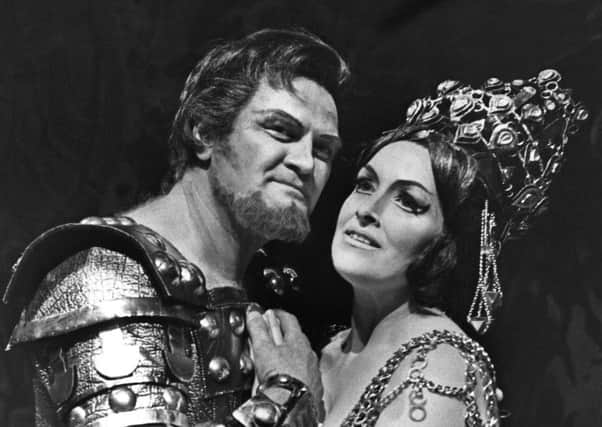Obituary: Jon Vickers, tenor


The tenor Jon Vickers was one of the great heldentenors of the post war era; supreme in the demanding roles of Verdi and Wagner. However, such was his vocal versatility that he was also renowned in such diverse roles as Samson (both Handel’s and Saint-Säens’s), Aeneas in Berlioz’s Les Troyens (pictured right, with Josephine Veasey as Dido), Florestan in Beethoven’s Fidelio and as Jason in Cherubini’s Medea, starring opposite Maria Callas in 1959. In the 1980s he made a strong impression as Peter Grimes in Britten’s opera of the same name.
Vickers was one of the first stars to emerge from the Covent Garden Opera Company in the 1950s and his singing of the title role in the Visconti production of Don Carlo in 1958 (under Carlo Maria Guilini) is now part of Royal Opera history. But he had an enormous range and gave robust and thrilling accounts of Otello, Canio (Pagliacci) and Parsifal.
Advertisement
Hide AdAdvertisement
Hide AdHe was often partnered in Wagner’s Tristan und Isolde with Birgit Nilsson and the two made a formidable couple on stage – both dramatically and vocally. The soprano once commented after a performance with him that his nerves “were outside his skin”.
Vickers was never the easiest of colleagues. Sir John Tooley, former artistic director of the Royal Opera told The Scotsman: “Jon, a singer of extraordinary intensity and commitment, used his large voice to thrilling as well as deeply dramatic and musical ends. He was profoundly moved by his faith and this in turn governed what he undertook.
“Jon was never slow to tell conductors, producers and managers what he thought of them. After the outburst, good sense usually prevailed, compromise was reached and the production benefited.
“Jon gave many wonderful performances, which will live long in the memory.”
He had strong religious beliefs – cancelling a performance in 1976 of Tannhauser because he considered Wagner’s music “blasphemous”. And he had an on-going dispute with the conductor Georg Solti which was never settled. Not for nothing was Vickers known backstage as “God’s tenor”.
In Antonio Pappano’s recent television programme devoted to the tenor voice, Vickers was marked out as one of the major stars: Pappano watched in awe as a video was played of Vickers singing Florestan’s aria from Fidelio.
Vickers was twice married. His first wife predeceased him and he is survived by his second wife, Judith, and two daughters and three sons from his first marriage.